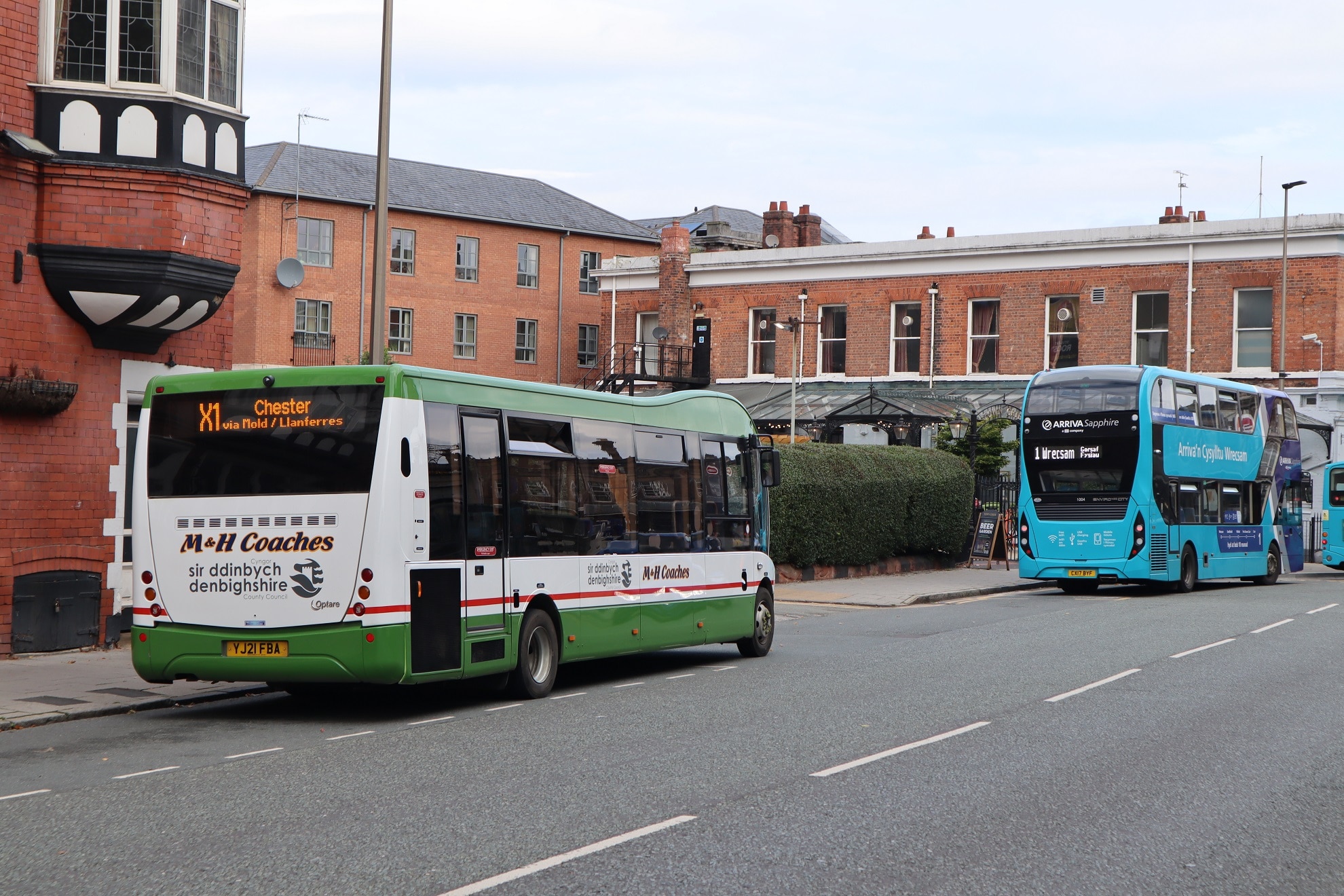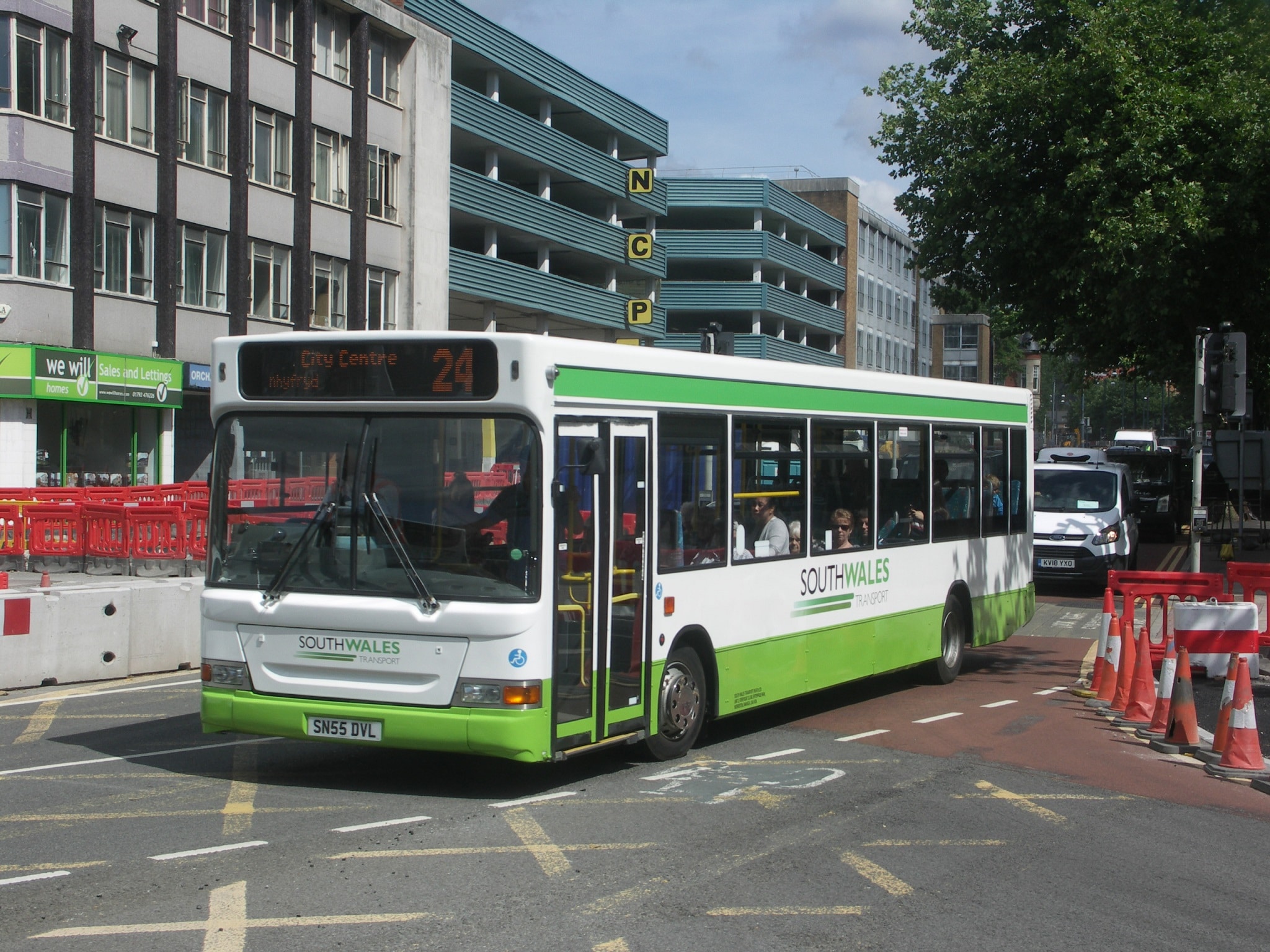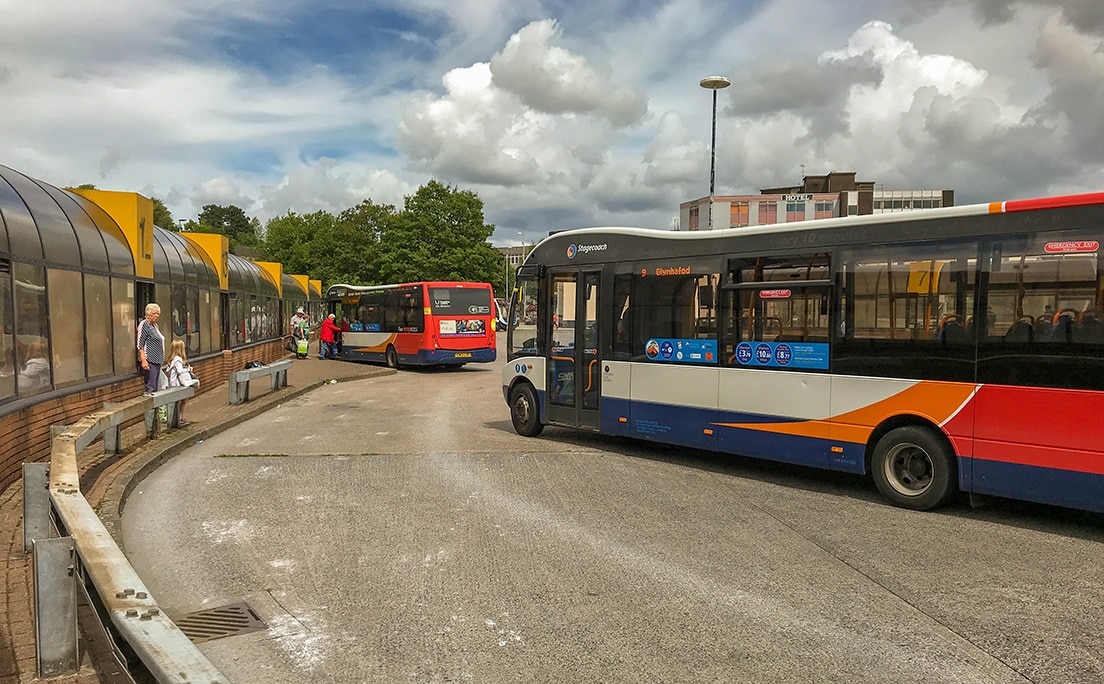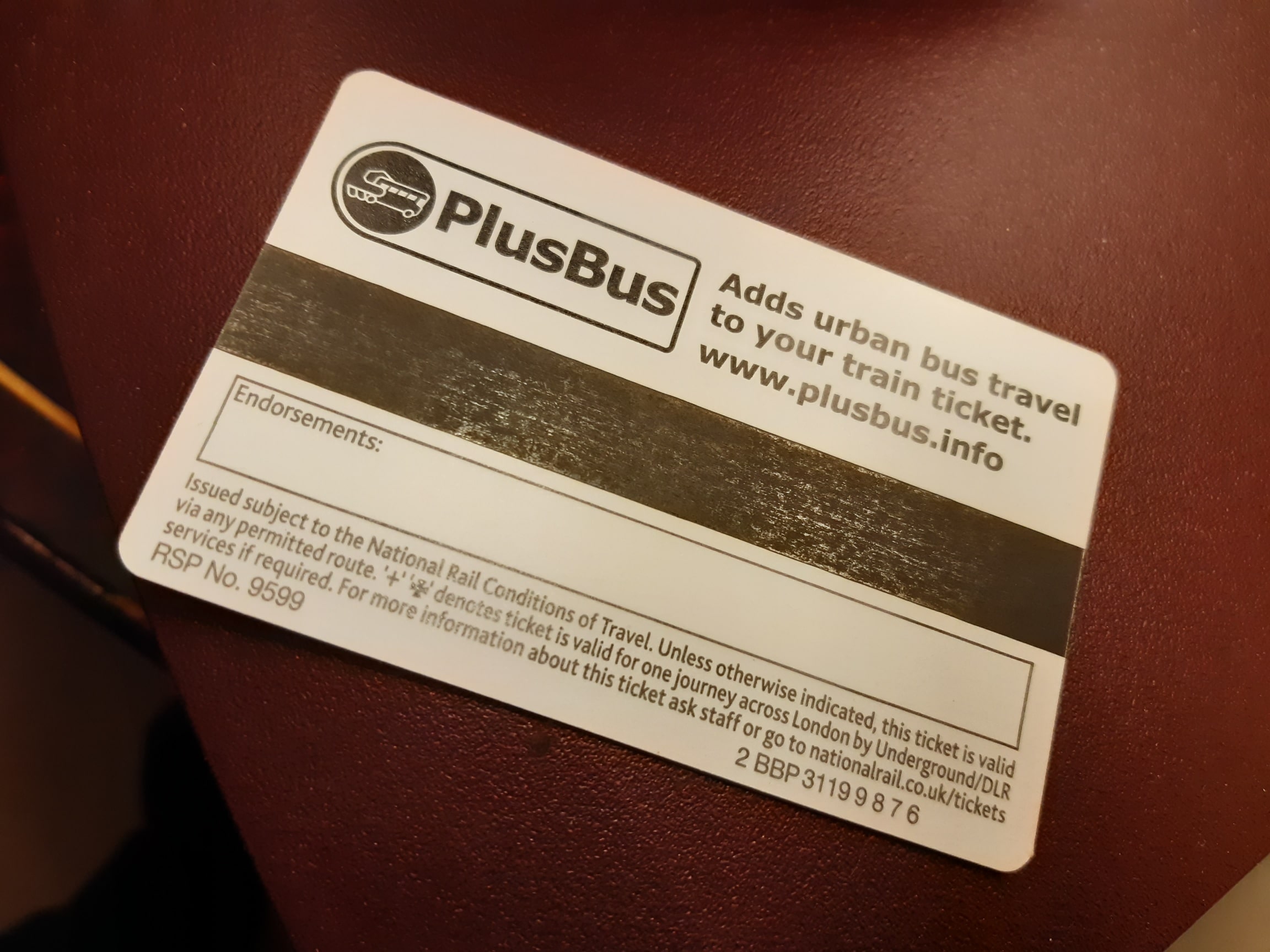The Welsh Government has published a white paper on the future of bus services and bus franchising in Wales, called One Network, One Timetable, One Ticket.
Confirming what had already been heavily hinted at on re-regulation, legislative proposals within the white paper include a requirement for bus services in Wales to be subject to franchising and the removal of current restrictions that prevent local authorities (LAs) from creating new municipal operators.
The document sets out an aspiration for a much-expanded network of both scheduled and flexible services as part of “a bus system that is governed and designed to serve the public interest.” Integrated connections (including those that are intermodal), higher frequencies and simplified ticketing also form part of the white paper.
In his foreword, Deputy Minister for Climate Change Lee Waters underlines previous Welsh Government criticism of the deregulated bus market. The white paper goes on to state that such an approach “has shown itself incapable of delivering the scale or pace of change we need,” although the document further notes that its own proposals “will take time and will probably require iterative improvements.”
Bus franchising in Wales: Benefits are clear, says WG
On proposals around re-regulation, the Welsh Government says that despite a high cost of implementation, “the benefits available from franchising outweigh those delivered either by partnership models or the current legislative framework.”
Under the Welsh Government’s plans, it would work with LAs, the four regional Corporate Joint Committees (CJCs) and Transport for Wales (TfW) to design networks “within the funding available.” Franchising power would sit with ministers, although the proposals include an option for it to be delegated. While such a need is not expected to arise, including scope for delegation “future proofs the primary legislation.”

However, the white paper notes that there may still exist a need for commercial services to be licenced in addition to the regulated network.
That is “particularly to ensure cross-border connectivity with England while maintaining consistency with other services in Wales.”
The proposals suggest that in those cases, Anglo-Welsh routes would be subject to the same level of network, timetabling and ticketing co-ordination as franchised services, but only on their section in Wales.
In accepting that a shift to re-regulation would also transfer revenue risk to the public sector, the white paper advocates the inclusion of incentives in franchising agreements. Those would reward high-quality service delivery and reliability, but also invoke penalties for failure to meet certain standards. The public bodies involved in the tendering of franchises may also look to specify staff pay and conditions, the white paper notes.
‘National centre of franchising excellence’ proposed
As part of its work on re-regulation, the Welsh Government proposes the establishment of what it calls a “national centre of excellence for franchising contracting.” That would be dealt with through TfW’s provision of a centralised franchising team and give all parts of the country access to the necessary resources to tender and manage contracts.
The costs of franchising will be considered in a draft regulatory impact assessment that will be published on Friday 1 April. The Confederation of Passenger Transport (CPT) estimates that a regulated model in Wales would require an additional outlay of around £61m per year, “with no guarantees that improvements… will be delivered any more quickly than through operators and LAs working in partnership.”
A spokesperson for CPT adds that the bus industry in Wales shares the Welsh Government’s ambition to improve services. But they note: “To avoid a period of uncertainty that [would delay] investment in improvements in services for passengers, we now need to see a clear timetable and a solid financial commitment to fund the changes that the Welsh Government proposes.”
The Confederation has also highlighted that operators’ expertise in service delivery and their existing relationships with passengers must be “fully utilised” during any reform process. The Welsh Government says it is already engaging with industry representatives and that a planned central ‘guiding mind’ group on franchising will include operators.
SMEs considered in Wales bus franchising proposals
Involvement of smaller businesses in franchising forms part of the Welsh Government’s proposals. It acknowledges that re-regulation poses a “risk” to those businesses, and it is thus working with TfW and the industry to consider how zero-emission buses and appropriate depot facilities are made available to SMEs. Ministers also want to reduce the barrier to market entry for those organisations.

Despite bullish talk of wholesale improvements, re-regulation of buses in Wales does not mean that “we will be able to run the ideal network, and that everybody will be able to get what they want from the bus system,” the white paper accepts.
In addition, the document proposes the creation of a duty to ensure that affordability is considered by public bodies when developing network plans.
“In practice, the Welsh Government will need to work with LAs through CJCs to discuss and agree funding envelopes to ensure that they can plan against… the right level of investment according to an area’s needs and to maximise that investment by designing the best possible bus services within the budget available,” the white paper states.
Municipals form prominent part of overhaul proposals
On new municipally owned bus operators, the Welsh Government proposes lifting current restrictions on their establishment. That would allow LAs the power to run services either in-house or via arm’s length companies as part of a franchised network. LAs would also be permitted to invest in or acquire existing operators. Such steps could allow two municipal operators to merge, the white paper adds.
Home-to-school transport contracted by LAs does not form part of the reform proposals. However, the Welsh Government intends to progress a review the Learner Travel Measure, which governs such services. Consultation on that work will be undertaken later in 2022.
The consultation on measures proposed in the white paper will be open until 24 June. Access the consultation document here.



























